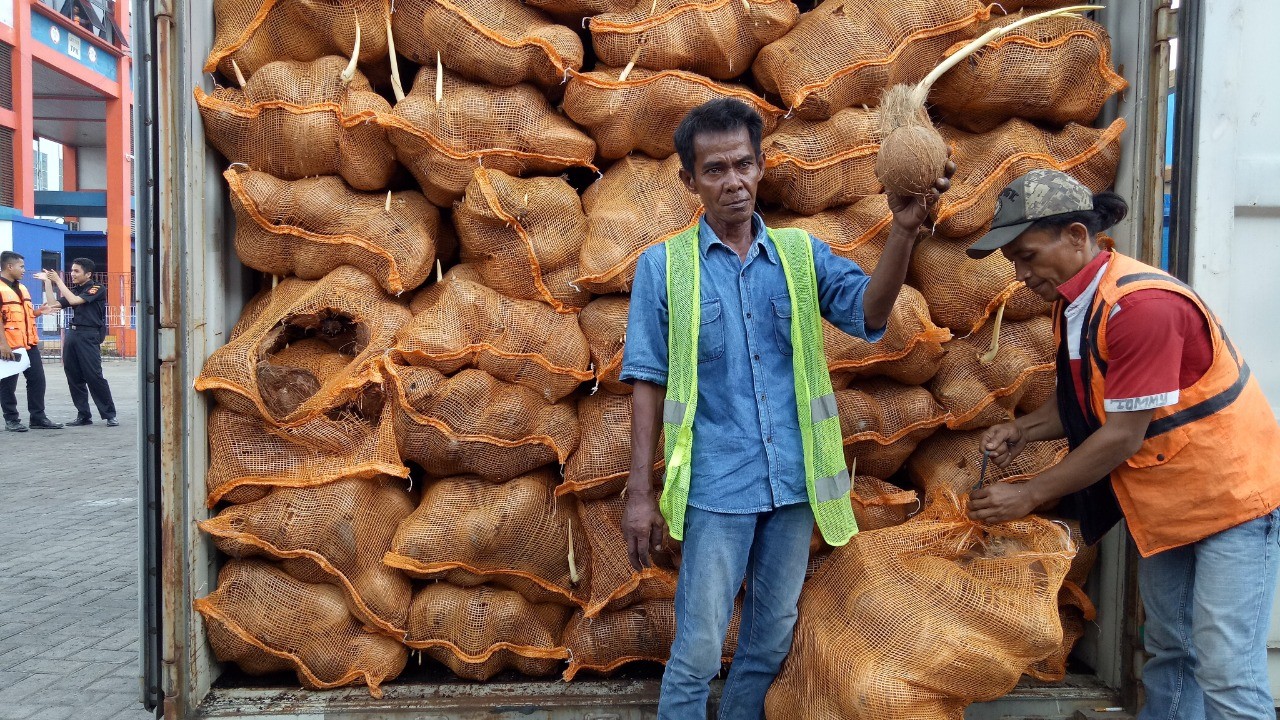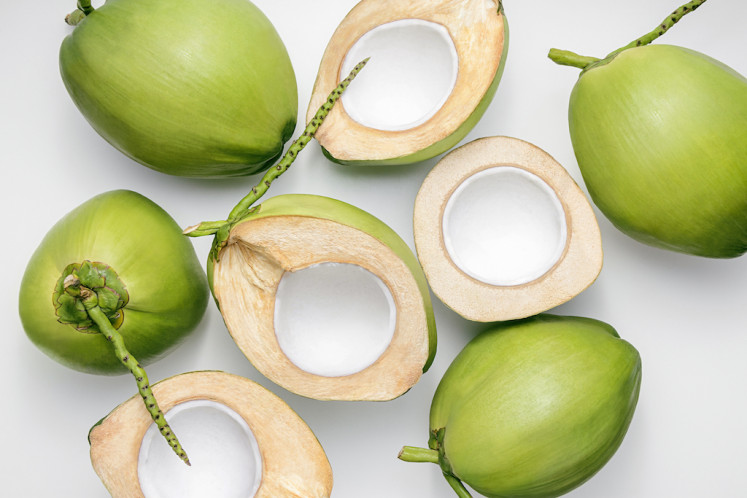Popular Reads
Top Results
Can't find what you're looking for?
View all search resultsPopular Reads
Top Results
Can't find what you're looking for?
View all search resultsSouth Sumatra recalls 30% of 'fresh' coconut exports to Thailand
South Sumatra has had to reimport hundreds of thousands of coconuts exported to Thailand after the produce germinated during shipment.
Change text size
Gift Premium Articles
to Anyone
S
outh Sumatra's fresh coconuts have struggled to penetrate the export market with hundreds of thousands of coconuts sent back from Thailand as the year draws to a close, because they were found to have germinated during shipment.
According to the Palembang Customs Office, 25 containers containing 625,000 fresh coconuts were recalled from Thailand on Nov. 14.
“The recalled coconuts account for about 30 percent of total coconut exports to Thailand,” Dwi Harmawanto, the office's spokesperson, said Nov. 19.
Dwi said Indonesia had shipped a total of 1,527 containers – or 37.1 million tons – of coconuts to Thailand, worth an estimated Rp 89 billion (US$6,2 million) in revenue.
South Sumatra has exported a total of 5,054 containers of its coconuts (94 million tons) around the world this year. Its primary market is China, where it shipped coconuts worth Rp 213 billion in export value.
“Thailand is the second top destination for [our] coconut exports. We have yet to encounter any problems in China,” Dwi told The Jakarta Post.
Fresh coconut is the third most valuable commodity after rubber and palm oil in South Sumatra, where 66,326 hectares of coconut plantations produce 57,732 tons of coconuts per year. Each municipality and regency in South Sumatra produces an average 1.13 tons of coconuts per year.
Stock image of fresh young coconuts (Shutterstock/SEE D JAN)Thailand reportedly rejected the coconuts because they had sprouted and developed into young trees up to 30 centimeters tall.
M. Rajief Nasir, the director of exporter PT Sentral Argo Indonesia, confirmed the recall, saying that the rejected coconuts were shipped by Sentral Argo. He added that he was disappointed by Thailand’s decision to reject all 25 containers from the company, since only 1 percent of the coconuts had germinated.
The reimportation would cost the company billions of rupiah, as a single container of coconuts was worth Rp 100 million, he added.
“We conducted a quality check prior to shipment. Some of the coconuts happened to mature just as Thailand tightened its [import] policy,” Rajief said. “We hope that the Indonesian government can [renegotiate] international trade regulations with the Thai government.”
In response to the incident, Iwan Gunawan, the acting head of the South Sumatra Trade Agency, urged Sentral Argo to file formal report about the issue.
“We will immediately report the issue to the governor, who will then coordinate with the Trade Ministry,” said Iwan.
Separately, produce marketing head Rudi Arpian of the South Sumatra Forestry Agency said that the duration of the export and distribution process from plantations to the destination country, combined with the humid internal environment of the containers, had caused the coconuts to germinate.
“It takes one month from harvesting the coconuts to [shipping]. It needs to be shortened,” Rudi said, adding that improvements to the export process could be financed by the regional or the state budget.
Pettah Amino, another South Sumatra coconut exporter, said that the export process was prolonged due to overwhelming demand from the international market.
“The process can take as long as two months at port. Meanwhile, the transit [time] to and from Indonesia could take 15 days,” he said. (rfa)











